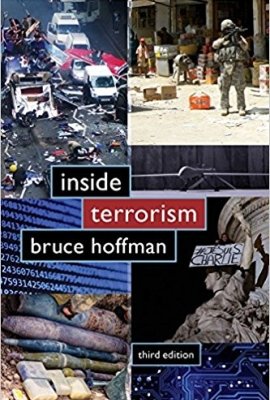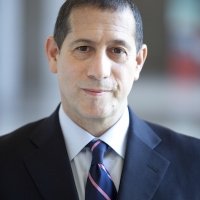Book Discussion: Inside Terrorism
Inside Terrorism remains the seminal work for understanding the historical evolution of terrorism and the terrorist mindset. In his newly revised edition, Global Fellow Bruce Hoffman tracks terrorism’s trajectory from ancient origins to today’s dynamics, discussing the repercussions of a post-caliphate ISIS, the potential resurgence of al-Qaeda, radicalization online, and terrorism in years ahead. The book also examines the rise of violent, anti-government militants, neo-Nazis, and white supremacists in the United States.
The author discussed his work and the complexities of the topic at a special Wilson Center event.
Key Quotes
Jane Harman
“The third edition of [Bruce Hoffman’s book]… will surely be used as a textbook in classrooms around the country. It now includes the creation and rise of ISIS as well as the origins of terror from the 19th century. It specifically explores the demographics of terrorists and the reasons behind the continued tactic of suicide terrorism.”
Robert Litwak
“Terrorists are, by definition, immoderate… and their very lack of moderation is actually something that creates a vulnerability or a vector for us to develop a counterterrorism strategy.”
Bruce Hoffman
“Before [social media], terrorist propaganda [for] recruitment was almost like throwing the proverbial bottle with a message in it into the ocean and if someone grabbed it or it washed up ashore, the terrorists struck gold and had a recruit. What we’ve really seen with ISIS in recent years… is what we might call… narrow-casting, which is the ability to use social media to very specifically target and home in on an individual and animate, motivate, inspire them to engage in violence.”
“Unfortunately, the Arab Spring and especially the events in Syria breathe new life into Al-Qaeda. It gave it a purpose, it gave it a relevance, it resulted in the split that created ISIS – but that didn’t mean that Al-Qaeda went away. As I argue in the book, Al-Qaeda has been playing the long game compared to ISIS’s much more short-term, promiscuous attempt to burst onto the scene... I would say that ISIS is the id and Al-Qaeda is kind of the ego.”
“I think, alarmingly, ISIS has been able to have it both ways: On the one hand, they’re very effective at inspiring, motivating, animating ‘lone wolves’ or lone actors... But at the same time, they’ve also been very good at creating an infrastructure – a network to support terrorist attacks.”
“I think the problem we face now is that we made tremendous progress at various intervals in the war on terrorism, but if I had to diagnose where we’ve gone wrong, it’s [that] we precipitously declared victory... We have to understand that success against terrorism isn’t only in weakening or even defeating the terrorist organizations, but it’s recalibrating the environment that gives rise to terrorism.”
“The fact that Hezbollah has far more missiles that they can target Israel or the rest of the region with than they do, probably, suicide bombers, I think is the best exemplar of how the phenomenon of terrorism has changed so profoundly and mixes and matches both traditional terrorist tactics with those we associate with established nation states and standing militaries.”
Related Publication

Inside Terrorism
Speakers


Professor, Edmund A. Walsh School of Foreign Service, Georgetown University; Visiting Senior Fellow, Council on Foreign Relations; Senior Fellow, U.S. Military Academy’s Combating Terrorism Center
